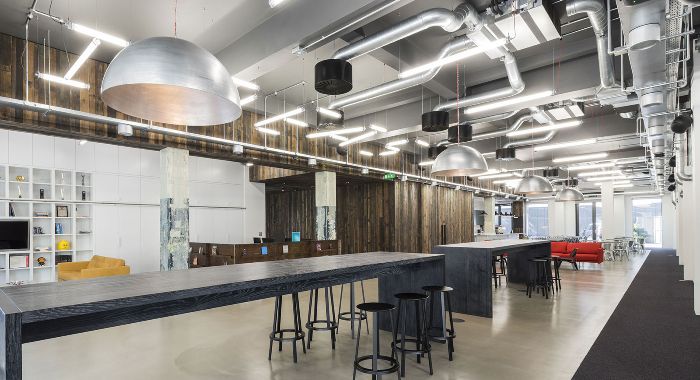(Article originally published by Campaign)
Instead of creating fantasy worlds, advertising should work to improve real life, writes Cheil London's executive creative director.
With Cannes Lions 2016 behind us, many in the industry will be ruminating on the lessons to be learned.
But, in my view, this year’s Cannes Film Festival – that slightly more glamorous annual awards event that precedes our own at the Palais – had just as much to offer those wanting to learn about how to engage an audience.
It was there that Steven Spielberg issued a warning to anyone hoping to get a story over to an audience via the medium of virtual reality. He said VR could be "dangerous" for film-making because storytelling suffers when viewers of VR are given the choice of where to look.
Arguably, you’ve got the same risk in a cinema or at home, where people can spend their time in front of the masterpiece you’ve created fast asleep, talking to the person next to them or staring at their phones.
But in non-virtual media, if what you’re offering is compelling enough, your audience will always want to follow the story.
Not having full control of – or always being able to marshal – your own narrative is something brands are still getting used to, even this far into the digital age. Film is one of few places where brands can still present themselves on their own terms.
Not having full control of – or always being able to marshal – your own narrative is something brands are still getting used to, even this far into the digital age.
Those wanting to do the same with VR will be disappointed. As Spielberg pointed out, the VR audience is positively encouraged to focus on whatever they want, above, behind or alongside the main action. VR is, therefore, not for brands that simply want to get their messages across.
You could extrapolate that one way to put VR to good use is to create a spectacular show – such as an immersive enchanted forest or a haunted house ride – for the viewer. However, if you’re a brand looking to make a real connection with a consumer, technological jazz hands won’t necessarily cut it.
Though the tech is new, the issues it exposes are not. Since the dawn of marketing, brands have wanted to take consumers to a place of unreality, where everything looks better and shinier.
My very first shoot as a junior copywriter was for Coke and set on a beach in Australia. We were supposed to be capturing the perfect Australian family on a flawless beach on an ideal summer’s day. In reality, it was so windy there was practically a sandstorm. All our efforts went into fighting nature and creating an idealised and somewhat fantastical version of reality.
In the finished film, there wasn’t even a hint of a breeze and the "mother" we cast would, actually, have been about ten years old when her "children" in the commercial were born. It occurred to me then that my job in advertising was to create a "beautiful reality". But even people in advertising can’t live in a fantasy world forever.
We’ve moved on from those early days of selling a dream and promoting an aspirational ideal to having the ability to make people’s lives easier and better, if we so wish. Of course, one of the ways we can do this with great effect is through VR.
While new tech can tempt brands to continue to promote a fantasy world, in my view the best VR and tech experiences are rooted firmly in reality. They either improve people’s lives or leave the viewer feeling more enriched and enlightened than they were before.
Examples include the work of an initiative called Robots For Good (pictured), which gives kids stuck in Great Ormond Street Hospital the chance to visit London Zoo virtually. There’s also Toyota’s TeenDrive365 VR experience, which educates teenagers about the dangers of distracted driving, and the Guided Meditation VR programme, which helps people suffering from anxiety to relax.
We are helping our client Samsung to do its bit with our #befearless initiative, which uses VR to help people overcome fears such as public speaking, and our RE:Shakespeare VR app, which aids school pupils who are studying Shakespeare.
We need as an industry to move from illusion to empowerment. This is a vital part of building a longterm relationship with customers. We should be in, and of, the real world and make people feel good about themselves, not force them to sit through whatever fantasy we’ve decided shows off our brand and its marketing firepower in the best light.
The films that opened at this year’s Cannes Film Festival did much to support this view. Female characters led some of the biggest movies, such as Personal Shopper, Ma’ Rosa and The Unknown Girl, and were portrayed not as Hollywood clichés but as independent agents of their own destiny – people that real women, and men, can relate to.
The winner of the Palme d’Or was I, Daniel Blake, Ken Loach’s film about a middle-aged carpenter in Newcastle who loses his job and is ground down by the UK welfare system. I’m not saying every Coke ad should look like an episode of EastEnders, just that we need to remember to contribute more.
We shouldn’t be using all of this exciting new tech at our disposal to just show off. Instead, let’s use it for the purposes of making people feel included, supported and better – not worse – about their lives.

